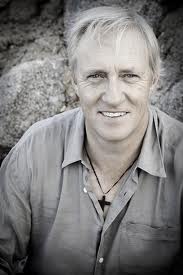Mike Breen on Missional Communities, Part 1
 Mike Breen is one of the most prominent leaders in an important grouplife trend referred to as missional community. Formerly the Senior Rector at St. Thomas Crookes, Sheffield, Breen currently leads 3DM, the global home for an organic movement of biblical discipleship and missional church that is centered in the United States. While at St. Thomas Crookes his team pioneered some very different ways of being the church and grew to be the largest church in England by the time he left.
Mike Breen is one of the most prominent leaders in an important grouplife trend referred to as missional community. Formerly the Senior Rector at St. Thomas Crookes, Sheffield, Breen currently leads 3DM, the global home for an organic movement of biblical discipleship and missional church that is centered in the United States. While at St. Thomas Crookes his team pioneered some very different ways of being the church and grew to be the largest church in England by the time he left.
I recently had the opportunity to ask Mike a few questions about missional communities. Here’s part one:
Mark: Let’s start with a little bit of definition. When you’re talking missional communities, what do you mean by that term?
Mike Breen: First off, I think it’s important to note that Missional Communities really isn’t a “new” thing. It really isn’t a fad or the savior of the church. Really, it’s something we see quite clearly in scripture when you begin understanding that every single letter that Paul wrote was to churches with an average size of about 45. Furthermore, while it’s a bit new to the United States, it’s been happening in Europe and other places for decades. So that really informs the discussion.
A Missional Community (MC) is a group of 20 to 50 people who exist, in Christian community, to reach either a particular neighborhood or network of relationships. With a strong value on life together, the group has the expressed intention of seeing those they are in relationship with choose to start following Jesus through this more flexible and locally incarnated expression of the church. They exist to bring heaven to the particular slice of earth they believe God has given them to bless. The result is usually the growth and multiplication of more Missional Communities. These MCs are networked within a larger church community allowing for both a scattered and gathered church. These mid-sized communities, led by laity, are “lightweight and low maintenance” and most often meet 3-4 times a month in their missional context. Each MC attends to the three dimensions of life that Jesus himself attended to:
- Time with God (worship, prayer, scripture, teaching, giving thanks, etc)
- Time with the body of believers building a vibrant and caring community
- And time with those who don’t know Jesus yet
Now this may sound a bit complicated, but it’s actually quite simple. It’s really just a spiritual extended family on mission together. That’s really it! If you’d like a bit more info on it, I think you’ll find this Wikipedia article is really helpful.
Mark: Thanks Mike! That gives us a good overview of the idea. What do you think are the most important advantages of this kind of group?
Mike: MCs first began as missional small groups (groups of 8-15 people) more than 20 years ago in England, and honestly, that’s where many churches begin in the United States, trying to make their small groups more missional. However, after a few years it became clear they were small enough to care, but not large enough to dare. Missional growth, multiplication and momentum was rare with these smaller, more missional groups. Leader burnout was common. Quite honestly, it took several years for this to surface as a recurring problem that needed to be dealt with. In fact, a lot of small group research coming out now shows that even the healthiest and mostly missionally minded groups can only multiply three times; it’s just too hard and too painful. Why go through that again?
After a few more years of experimenting, mid-sized groups, about the size of an extended family, emerged as a missional and discipleship vehicle that was capable of the exponential growth and depth we see today. As Missional Communities continued to develop further and as we began to research why, something exciting came to light: Every culture (and sub-culture) gathers and finds identity in groups the size of extended families. When natural genetic extended families break down, people of all races, ethnicities and backgrounds organically begin to re-create the extended family. Missional Communities were simply tapping into something hardwired into human DNA.
Mark: I love that phrase. “Small enough to care, large enough to dare.” That really says it well.
Are you on the missional community path? Exploring the concept? What do you think about it? How’s it working? You can chime in by clicking here.
Hope you found part one of my interview with Mike Breen helpful. I’ll be posting part two tomorrow. You can make sure you don’t miss anything by signing up to my updates right here.


Love missional communities? Love golf? Check out http://www.divinebacknine.com